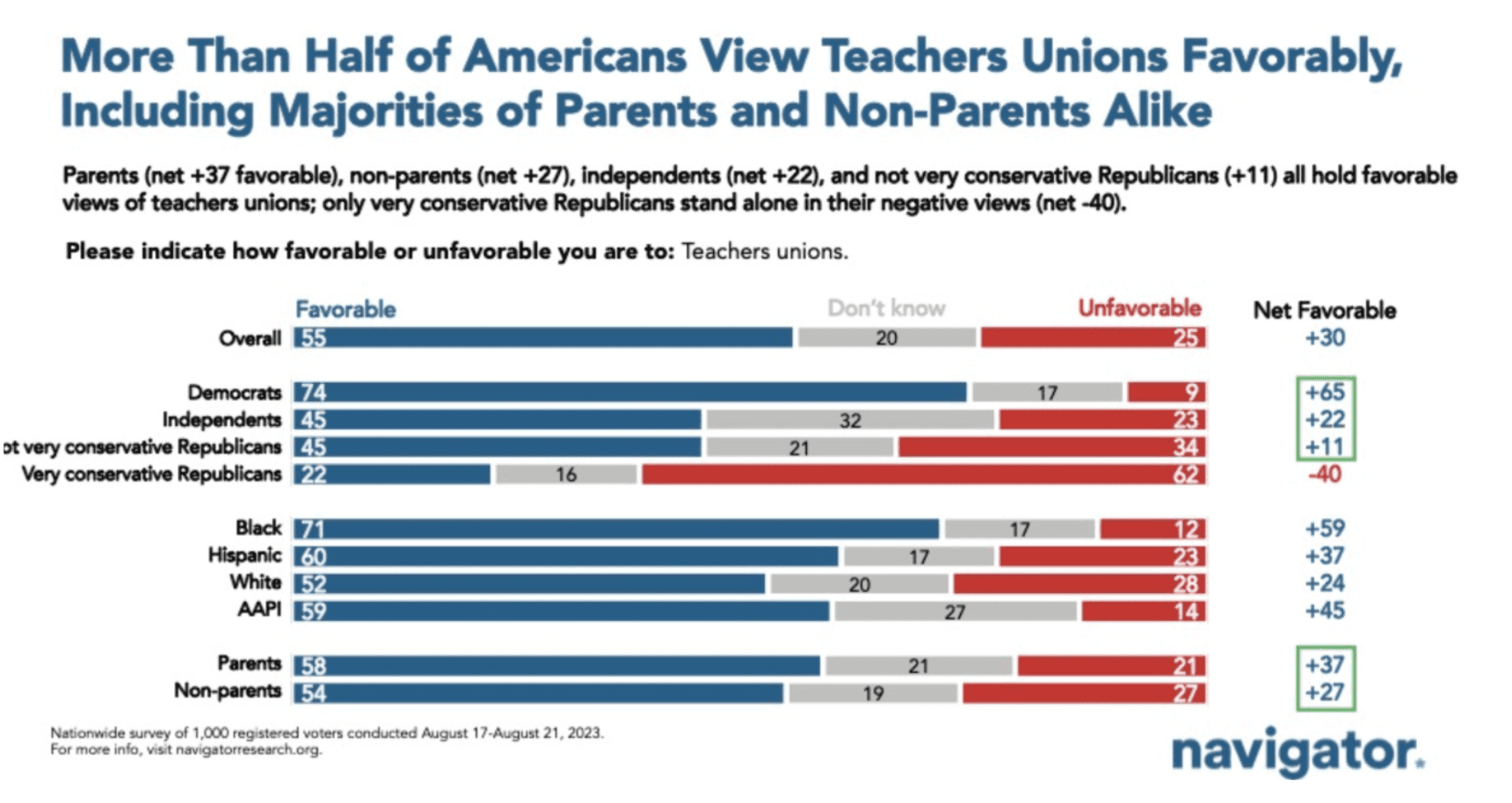The House Select Committee on Education Opportunity and Enrichment’s 88th legislative session interim report and recommendations confirm what we already know: Texas’ education workforce is in crisis by design. Governor Abbott and Texas’ most powerful elected officials refuse to fully fund the cost of public education, despite more than 85% of Texas children being in public schools. Despite Governor Abbott’s agenda to destroy public education, communities from McAllen to Amarillo continue to support public schools.
High teacher turnover is a looming crisis that costs all of us. The interim report confirms Texas’ teacher turnover rate (25%) exceeds the national average, as the 2022 Charles Butt Foundation survey shows 77% of teachers are considering leaving their jobs.
The report points to the Teacher Vacancy Task Force’s (TVTF) recommendations from February 2023 to address Texas’ education workforce turnover. The TVTF recommends improving teacher pay, benefits, and working conditions, while also increasing the state’s basic allotment (dollars spent per student) and making the Texas Education Agency (TEA) promote teachers and their value.
Governor Abbott refused to support his own task force’s recommendations to give teachers and education staff a well-earned salary increase – what could have been the first step in addressing crisis-level turnover. Despite the task force’s recommendations and everyday Texans demanding the legislature appropriately fund our public schools, elected officials, many of whom answer to wealthy corporations and political donors, willfully undermine our 5.4 million public school students across the state.
It’s Time to Put Teachers’ Voices First
It’s time we listen to education workers, students’ families, and the Texas communities who value our state’s public school system. But, how do we listen to the people most impacted by policy?
We can act on the workforce’s recommendations, despite Gov. Abbott’s agenda to eradicate public schools.
Texas teachers and education union members from San Antonio, Austin, and Houston participate in a consultation process with their district leadership, but these consultations do not allow workers to collectively bargain over pay, benefits, or working conditions. Collective bargaining is the process by which working people, through their unions, negotiate contracts with their employers to determine their terms of employment, including pay, benefits, hours, leave, health, and safety.
Instead, these meetings provide a space for workers’ voices to be heard by the district administration on important decisions impacting teachers and staff, but these consultations are optional and can be taken away by the district. While Austin ISD staff were able to secure a 7% raise through its consultation process and simultaneously take collective action as a union, just a few hours away, TEA took over Houston Independent School District and revoked the consultation process with teacher unions.
Every Texas worker has the right to join a union, teachers included.
In Texas, public sector workers, like teachers and education staff, are banned from collective bargaining, even though it can solve workplace issues and ensure the most powerful people and institutions don’t disregard the voices of workers, like what Governor Abbott is doing today. The state legislature makes a collective bargaining exception for police and firefighters because it recognizes the importance of these jobs and acknowledges that collective bargaining is a “fair and practical method for determining compensation.” The state can do the same for teachers.
Texas is one of only six states that explicitly ban teacher collective bargaining. States where teachers have collective bargaining rights frequently experience fairer wages and better working conditions, and students in these states have better education outcomes because power is balanced between elected officials and everyday workers. Cornell University School of Industrial and Labor Relations found that mandatory collective bargaining laws increase public worker wages by 5–8%.

When teachers and education staff collectively bargain, it raises the bar for all of us. A recent Navigator poll found that more than half (55%) of Americans view teacher unions favorably, and, 67% of Americans support union efforts generally. Empowering education workers’ voices through collective bargaining is a critical step in making sure public school students get the quality education they deserve. As community members and parents, we should stand with our local public school workforce and equip them with one of the most powerful tools we have– collective bargaining.
